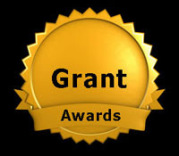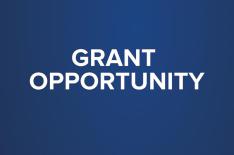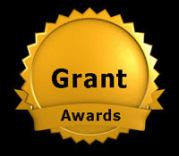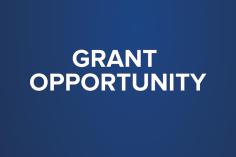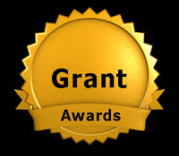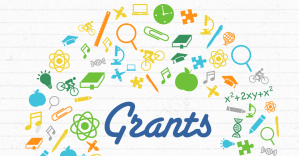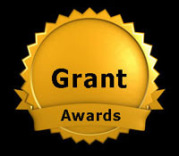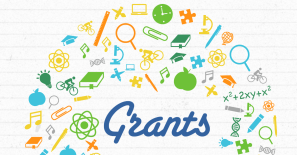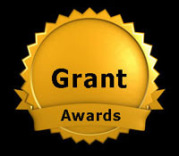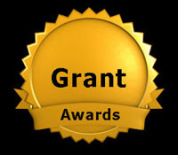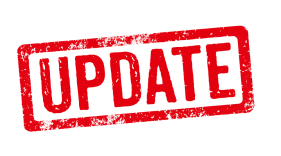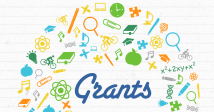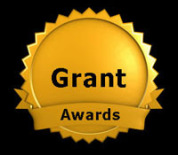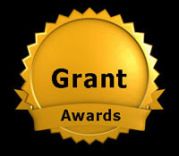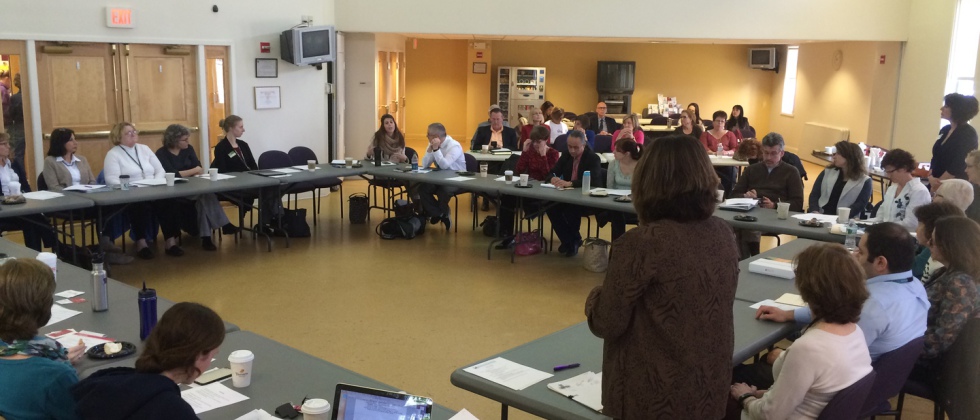
2024 Spring Grant Cycle Awards:
We are excited to announce and congratulate the awardees of our last grant cycle representing the the current Community Health Improvement Plan (CHIP):
- Family Continuity - "Building Capacity to Provide Culturally Informed and Responsive Services to An Increasingly Diverse Community"- $18,230
- Hockomock Area YMCA- "Reducing Homelessness Risk Through Skill Utilization"- $29,960
- Riverside Community Care- "School Avoidance Caregiver and Parent Support Group"- $4,147
- Catholic Charities Worcester County - Greater Milford Office- "Milford Area Office Culturally Competent Food Choice Pantry"- $7,000
We would like to thank everyone who applied and applaud all the great work that is happening in our community. We would also like to extend a huge thank you to all the members of the Grant Review Committee, who volunteered their time to review the grants! Finally, we would like to thank New England Chapel, for allowing us to use their facility for the review.
2024 Spring Grant Cycle:
In keeping with the recommendations of its 2022 Community Health Improvement Plan (CHIP), CHNA 6 is pleased to solicit proposals from eligible nonprofit and government organizations for the following three Priority Areas:
-
1.1.1 Research and promote the development of incentive programs to increase the number of providers in our region who are providing culturally informed and responsive services.
-
1.1.2 Provide a broad range of training opportunities that educate existing workforce and community leaders around topics such as cultural humility, trauma-informed approaches, early and comprehensive assessment and awareness of the root causes of health.
-
1.1.3 Gather more information, as needed, about issues/barriers providers face in providing culturally relevant services.
-
1.1.4 Assess the region’s jail diversion programs and possibilities for expansion of social worker ride-alongs with law enforcement (e.g., to other towns and hours beyond 9:00am-5:00pm)
-
1.2.1 Establish a baseline of the number of places including where there are gaps in services – based on where and how people want to get services (e.g., telehealth, texting appointments, self-care, length of appointments).
-
1.2.2 Educate and promote the use of existing resources (e.g., 988, 211, behavioral health access lines) through various channels (e.g., community forum, database, social media).
-
1.2.3 Work to increase the number of providers who accept MassHealth.
-
1.2.4 Advocate for MassHealth members to have expanded access to culturally relevant resources.
-
1.3.1 Foster community discussion and sharing of stories through community forums or other methods.
-
1.3.2 Create opportunities for families supporting those with SUD/MH challenges to better advocate for their loved ones and find emotional support for themselves.
-
1.3.3 Align messaging with the state’s new Behavioral Health Roadmap.
-
1.3.4 Educate town leaders on the importance and urgency of mental health and substance use care; and the need for more services/resources.
-
2.1.1 Promote the food calendar through a wide variety of locations and organizations (e.g., faith-based organizations, daycares, hairdressers, urgent care, clinics, municipal buildings, libraries, schools, universities, grocery stores, senior centers)
-
2.1.2 Promote partnerships between smaller communities to develop regional food calendars.
-
2.1.3 Promote available resources, including programs such as SNAP WIC, through existing communication mediums (e.g., local cable access, social media, radio (highlight resources through series on food resources), local newspapers)
-
2.1.4 Develop informational sessions on available food resources and how to access them in multiple platforms and languages (e.g., Conduct Q&A sessions, develop YouTube video).
-
2.1.5 Provide educational materials to local agencies and community partners (e.g., case managers, community health workers, first responders).
-
2.2.1 Engage local farms and community stakeholders to collaborate on mobile farmer’s markets.
-
2.2.2 Promote collaboration between food rescue organizations and community sites to establish a new delivery site(s).
-
2.2.3 Confirm and promote enrollment in home grocery delivery services using SNAP benefits https://www.mass.gov/snap-online-purchasing-program
-
2.2.4 Advocate for the importance of public/community transportation related to food insecurity.
-
2.3.1 Identify the three most underserved cultures/populations represented in our communities.
-
2.3.2 Identify community leaders who are part of and/or work with the cultures/populations to establish trust.
-
2.3.3 Engage community representatives to identify food insecurity barriers for underserved populations.
-
2.3.4 Share assessment findings with community food providers.
-
2.3.5 Work collaboratively with community representatives and stakeholders to address food insecurity barriers identified.
-
2.4.1 Identify existing and facilitate new food resource partnerships.
-
2.4.2 Conduct outreach to non-traditional food partners (e.g., tech schools, churches, CBO’s).
-
2.4.3 Assess community interest in being part of a food resource partnership.
-
2.4.4 Explore quarterly food collaborative and invite interested organizations.
-
2.5.1 Assess existing resources/trainings and promote them (e.g., Milford Regional, MassHire, YMCA – Cooking Matters).
-
2.5.2 Engage the community in assessment of knowledge, skills and resources needed to promote sustainability of nutritious food purchasing, preparation, and overall diet.
-
2.5.3 Identify opportunities and mediums to share these resources.
-
2.5.4 Explore incentives to engage community members in trainings (childcare, stipends, food preparation materials).
-
2.5.5 Distribute information about skill building programs to food resource providers and stakeholders.
-
3.1.1 Outreach to community partners to gather information on similar efforts and to identify existing resources.
-
3.1.2 Identify a host for the centralized, online site (e.g., explore potential corporate sponsor(s) or other financial backers).
-
3.1.3 Establish expectations for developing and maintaining the centralized, online site, including instructions for use of existing tools (e.g., Google Translate) to translate site information into other languages.
-
3.1.4 Include information on accessibility of resources (e.g., languages, ADA accessibility).
-
3.1.5 Make community partners and community members aware of the “new” resources.
-
3.2.1 Determine what programs exist and accessibility of each (e.g., in what languages they are offered, translation/interpreter services offered, whether they are ADA compliant, culturally appropriate/competent (establish criteria), cost of program, financial assistance available, location, transportation (in-person/virtual)).
-
3.2.2 Pull together the people who work on transition/life skills, and who engage the community, (e.g., summit) to share information, ideas, and ways to raise awareness, and define the scope of the homelessness/at risk of homelessness situation in each community.
-
3.2.3 Encourage service providers and organizations to offer new/expanded skills programs in areas where gaps in programming may exist.
-
3.2.4 Coordinate efforts between service providers and organizations offering skills programs to match people, including marginalized populations, with skills programs based on individual needs.
-
3.3.1 Develop a “short list” of action steps on what to do to when legislation is being considered and whether CHNA 6 will advocate for support of the legislation.
-
3.3.2 Connect with partners in Massachusetts to learn about upcoming legislation to be considered.
-
3.3.3 Communicate with CHNA 6 partners on ways that they can advocate for or against upcoming legislation.
-
3.3.4 Offer education, including the impact on public health, to partners and local legislators on the pending legislation.
-
3.4.1 Identify the need by community for shelter/transitional housing needs. See also Strategy 3.2.2
-
3.4.2 Share information on successful models and/or best practices from other communities (e.g., Fitchburg example of Catholic Charities).
-
3.4.3 Explore options for cooperating with shelters in communities that border the Greater Milford service area, including RI.
-
3.4.4 Raise awareness of the need for increased capacity, where needed (e.g., community members, organizations who work with the homeless, local leaders).
-
3.4.5 Promote programs that enable people to find long-term solutions to potential homelessness.
- Form of Intent
- Narrative (including cover sheet)
- Project budget and budget narrative (using excel spreadsheet in Submittable)
- Most recent audited financials or copy of Form 990 (not required for municipalities)
- IRS 501(c)3 determination letter (not required for municipalities)
- Letter(s) of collaboration (if applicable)
-
January 12, 2024 Bidders Conference (For video of meeting,click here)
-
January 19, 2024 Required Form of Intent due
-
February 9, 2024 Grant proposals due
-
March 8, 2024 Grants announced
Communities Served by CHNA 6
Bellingham, Blackstone, Douglas, Franklin, Hopedale, Medway, Mendon, Milford, Millville, Northbridge, Sutton, Upton and Uxbridge.
To apply, click here!
Important tips:
- Do not use Internet Explorer as your browser!
- How can I Safelist Notification Emails from Submittable?
- Help resources (or “?” on top right hand corner when logged in)
Fall Community Grant Award Announcement:
We are excited to announce and congratulate the awardees of our last grant cycle representing the the current Community Health Improvement Plan (CHIP):
- Warrior Within Yoga Project Inc. - $4,800
- The SAFE Coalition - $5,000
- The Hockomock Area YMCA - $10,000
- MAB Community Services, Inc./MA Association for the Blind and Visually Impaired Division - $10,000
We would like to thank everyone who applied and applaud all the great work that is happening in our community. We would also like to extend a huge thank you to all the members of the Grant Review Committee, who volunteered their time to review the grants! Finally, we would like to thank New England Chapel, for allowing us to use their facility for the review.
Migrant Grant Opportunity:
CHNA 6 is offering municipalities housing migrants in hotels contracted by the Commonwealth of Massachusetts a one-time $10,000 grant to assist in expenses incurred by the municipalities. Information regarding this grant has already been sent to the town administrators/managers and the public health directors in CHNA 6 towns. For additional information, please email coordinator@CHNA6.org. CHNA 6 is pleased to announce that the Sutton, Franklin, and Milford have already been awarded migrant grants!
2023 Spring Grant Award Announcement:
We would like to thank everyone who applied and applaud all the great work that is happening in our community. We would also like to extend a huge thank you to all the members of the Grant Review Committee, who volunteered their time to review the grants! We are excited to announce and congratulate the awardees of our last grant cycle representing the the current Community Health Improvement Plan (CHIP):
- Bright Beginnings Center, Hopedale Public Schools - $1,000
- Wayside Youth & Family Support Network, Inc. - $12,000
- Medway Village Church Food Pantry - $57,837
- Hockomock Area YMCA - $43,000
- Medway Public Schools - $56,000
- Blackstone Valley Emergency Shelter - $42,419
Fall 2020 Community Resiliency and Recovery Grants:
The Greater Milford Community Health Network Area (CHNA 6) is a partnership with the Massachusetts Department of Public Health, the Milford Regional Medical Center, local service agencies, schools, boards of health, community health centers and other health organizations, as well as other concerned citizens who are working together to build healthier communities. CHNA 6 awards grants to nonprofits and municipalities for activities that are in line with its Community Health Improvement Plan (CHIP).
During the Summer of 2020, the CHNA 6 Steering Committee reviewed and revised the CHIP to reflect the critical public health needs brought about by the COVID-19 pandemic. The fall grants cycle is dedicated to supporting activities included in the CHIP, here. Please find all grant documents below:
COVID-19 Emergency Grants:
The CHNA 6 Steering Committee has voted to offer emergency grants in response to the COVID-19 pandemic. Applications of up to $10,000 will be accepted on a rolling basis from July to September. For grant guidelines, click here. For grant application, click here. For grant guidelines, click here. For grant application, click here.
COVID Emergency Grant Guidelines PDF.pdf
Adobe Acrobat document [118.6 KB]
COVID emergency grant application.docx
Microsoft Word document [32.4 KB]
2020 Spring Grant Awards:
In keeping with the recommendations of the October 2019 update to the 2015 Community Health Improvement Plan, the Greater Milford Community Health Network Area (CHNA 6) is pleased to be able to award grants this year that target our priority areas. After reviewing 11 applications from our partner organizations, the CHNA 6 Steering Committee is very excited to offer funding to 6 projects at $152,757.15 for this year's grant cycle. We would like to congratulate the following grant awardees:
- The Medway Public Schools: "Wrap-Around Service Specialist"
- Riverside Community Care Outpatient Center: "Anxiety and Stress management YCBT for High School Students"
- The NAN Project, a Program of Eliot Community Human Services: "The NAN Project in Hopedale"
- Wayside Youth & Family Support Network, Inc.: "Embedding a clinician at Stacy Middle School to Provide Mental Health Counseling During School Hours"
- Hockomock Area YMCA: "Centralized Model for School Food Pantries in Milford"
- Franklin Food Pantry: "Community Garden"
We would like to thank everyone who applied and applaud all the great work that is happening in our community. We would also like to extend a huge thank you to all the members of both Grant Review Committees, who volunteered their time to review the grants!
2020 Spring Grant Cycle:
In keeping with the recommendations of the October 2019 update to the 2015 Community Health Improvement Plan, the Greater Milford Community Health Network Area (CHNA 6) is pleased to solicit proposals from eligible nonprofit and government organizations for the following four Priority Areas:
- Chronic Disease Prevention and Health Promotion
- Mental Health and Substance Use
- Violence Prevention
- Access
Click here for all 2020 grant documents:
- Notification of Intent to Apply Form - required *
- Grant Guidelines
- Grant Coversheet
- Project Narrative
- Budget Terms
- Project Budget and Narrative:
- PDF version
- Google drive version: Please download and save in order to use document to create budget
- Sample Project Budget and Narrative
2019 Fall Grant Announcement:
The CHNA 6 Steering Committee recognizes that valuable community projects may fit with the overall priorities of the Community Health Improvement Plan (CHIP) but do not address specific objectives and strategies. The Community Grants Program was designed to support these projects, with a special emphasis on smaller community-based and/or grassroots organizations. We would like to congratulate the following grant awardees:
- Abundant Care Inc.: "Personal Products for Underserved and Immigrant Populations”
- Franklin Senior Center: "Treadmill Replacement"
- Hopedale Public Schools (Bright Beginnings Center): "Bright Beginnings Center Pyramid Model Implementation"
- Medway Public Schools: "Rachel's Challenge”
- Milford Public Schools: "Botvin Life Skills Training”
- Milford Youth Center: "MYC Boxing Ring”
- Tri-Valley Inc.: "Benefits Enrollment Counselor”
We would like to thank everyone who applied and applaud all the great work that is happening in our community. We would also like to extend a huge thank you to all the members of the Grant Review Committee, who volunteered their time to review the grants!
2019 Fall Community Grants:
The Greater Milford Community Health Network Area (CHNA 6) is committed to working with municipalities and nonprofit organizations to improve the health of the region. In recent years, CHNA 6 has offered grants to address specific objectives of the 2015 Community Health Improvement Plan (CHIP). This “collective impact” strategy will allow for lasting social change around health issues identified as part of the Community Health Assessment.
The CHNA 6 Steering Committee recognizes that valuable community projects may fit with the overall priorities of the CHIP but do not address specific objectives and strategies. The Community
Grants Program was designed to support these projects, with a special emphasis on smaller community-based and/or grassroots organizations.
In keeping with the recommendations of its 2015 Community Health Improvement Plan, CHNA 6 is pleased to solicit proposals from eligible nonprofit and government organizations for the following
four CHIP Priority Areas (to review the CHIP, click here):
- Chronic Disease Prevention and Health Promotion: To create healthier communities and prevent chronic disease by improving nutrition and increasing physical activity.
- Mental Health and Substance Use: To increase emotional health across the lifespan and build an accepting community for those who are affected by mental health and substance use issues.
- Violence Prevention: To promote non-violent behaviors across the lifespan.
- Access: To Increase availability, knowledge, and use of services and resources that promote health, wellness, and access for vulnerable populations in CHNA 6 communities.
Click below for Notification of Intent to Apply, 2019 Fall Grant Guidelines and Narrative and the Project Budget and Budget Narrative:
Notification of intent to apply form PDF[...]
Adobe Acrobat document [72.4 KB]
2019 FALL Community Grant Guidelines PDF[...]
Adobe Acrobat document [1.4 MB]
Project Budget and Budget Narrative (Fal[...]
Microsoft Excel sheet [33.5 KB]
2019-2020 Grant Announcement:
In keeping with the recommendations of the 2018 October update to the Community Health Improvement Plan, CHNA 6 is pleased to be able to award grants this year that target our priority areas. After reviewing 8 applications from our partner organizations, the CHNA 6 Steering Committee is very excited to offer funding to 2 projects at $32,133.00 for our forth year grant cycle. We would like to congratulate the following grant awardees:
- The NAN Project
- Wayside Youth and Family Support Network
We would like to thank everyone who applied and applaud all the great work that is happening in our community. We would also like to extend a huge thank you to all the members of both Grant Review Committees, who volunteered their time to review the grants! For complete list of grant awards, please click below.
Adobe Acrobat document [171.7 KB]
Spring 2019 Update:
Thank you to all those who attended our last CHNA 6 meeting and Bidders Conference on January 18, 2019. We would also like to thank all those who signed up to be on the Grant Review Committees. For the Spring 2019 Grant cycle, we have received six level one grant proposals and two level two proposals, for a total request of $278,597.00. We wish all the agencies good luck! Final decisions will be announced on March 18, 2019.
Spring 2019-2020 Grant Info:
In keeping with the recommendations of the October 2018 update to the 2015 Community Health Improvement Plan (on main page), the Greater Milford Community Health Network Area (CHNA 6) is pleased to solicit proposals from eligible nonprofit and government organizations for the following four Priority Areas:
- Chronic Disease Prevention and Health Promotion
- Mental Health and Substance Use
- Violence Prevention
- Access
The Steering Committee of the CHNA was charged with revisiting the CHIP each year to “improve and further align
expectations with outcomes.” During the fall of 2018, the Steering Committee worked to evaluate the outcomes of current grantees and how well they met the objectives of the CHIP. In
addition, the Steering Committee reviewed the 2018 Community Health Assessmentconducted by Milford Regional Medical Center.
Click here for all 2019 grant documents :
- Notification of Intent to Apply Form - required *
- Grant Guidelines
- Grant Coversheet
- Project Narrative
- Budget Terms
- Project Budget and Narrative:
- PDF version
- Google drive version: Please download and save in order to use document to create budget
- Sample Project Budget and Narrative
2018-2019 Grant Announcement:
In keeping with the recommendations of the 2017 October update to the Community Health Improvement Plan, CHNA 6 is pleased to be able to award grants this year that target our priority areas. After reviewing 12 applications from our partner organizations, the CHNA 6 Steering Committee is very excited to offer funding to 8 projects at $193,161.50 for our third year grant cycle. We would like to congratulate the following grant awardees:
- United Way of Tri-County
- Family Continuity Inc.
- Edward M. Community Health Center
- Hockomock Area YMCA (Level 1)
- Hockomock Area YMCA (Level 2)
- Milford Youth Center
- Medway Public Schools
- Franklin Food Pantry
We would like to thank everyone who applied and applaud all the great work that is happening in our community. We would also like to extend a huge thank you to all the members of both Grant Review Committees, who volunteered their time to review the grants! For complete list of grant awards, please click below.
Adobe Acrobat document [74.5 KB]
2017-2018 Grant Announcement:
- United Way of Tri-County
- Family Continuity Inc.
- Milford Police Department & JAG
- Riverside Community Care
- Edward M. Community Health Center
- Hockomock Area YMCA
- Kennedy-Donovan Center
- Town of Milford Ruth Ann Bleakney Senior Center
- Milford Youth Center
- Hockomock Area YMCA
Adobe Acrobat document [484.2 KB]
2016-2017 Grant Awardees:
- Click here for 2016-2017 grant report summary.
2016 Mini-Grant Award Announcement.pdf
Adobe Acrobat document [227.9 KB]

